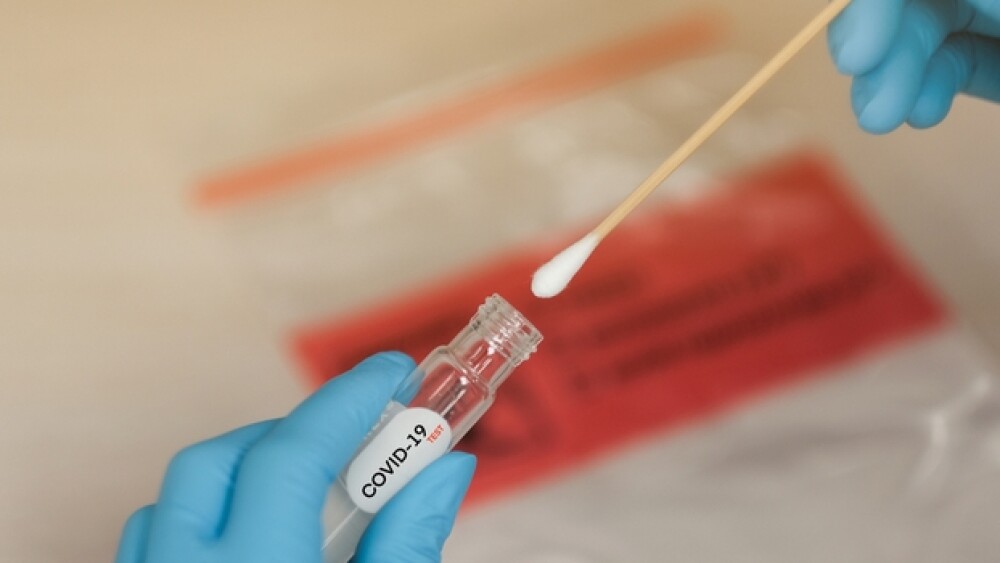Researchers at a New York hospital compared Abbott’s 15-minute Abbott ID NOW test to another COVID-19 diagnostics device and found that the Abbott system missed 48% of positive cases the other device detected.
Shares of Abbott Laboratories dipped in premarket trading following reports of a new study showing that its approved COVID-19 testing kits have fallen short in accurately detecting the novel coronavirus.
Researchers at a New York hospital compared Abbott’s 15-minute Abbott ID NOW test to another COVID-19 diagnostics device and found that the Abbott system, which is used by multiple government agencies including the White House, missed 48% of positive cases the other device detected, The Wall Street Journal reported this morning. The research, which has not been peer reviewed, was conducted by NYU Langone Health in New York City. The study has been posted online.
ad
The research pitted the Abbott ID NOW test against Cepheid’s GeneXpert, which takes about 45 minutes to complete a test. The NYU lab had previously validated the Cepheid test and conducted a study comparing the accuracy of that device with Abbott’s device. Over a three-day period, the researchers tested 101 patients who entered the emergency room. Each patient was swabbed twice and then tested in both machines. The results were disheartening for the Abbott test as nearly half of them failed to identify the virus in those patients. According to the study, Cepheid’s GeneXpert detected 31 positive cases among those samples. The Abbott test missed nearly half of the positive cases. The ID NOW test detected only 16 of the 31 positives. The 15 missed tests were false negatives, the researchers said.
The Abbott test also failed to detect about one-third of positive specimens that had been stored in a liquid on both diagnostics devices. The Journal noted that last month, Abbott changed instructions for the ID NOW device that warns against using a preservative, which could hamper accuracy.
Abbott questioned the results. In a statement to The Wall Street Journal, the Illinois-based company said it was “unclear if the samples were tested correctly in this study.” Abbott said more than 1.8 million ID NOW tests have been distributed and the reported rate of false negatives to Abbott is 0.02%. Abbott added that the NYU research is not consistent with other studies. The company pointed to a study conducted by Detroit city officials that found the ID Now correctly detected 48 out of 49 positive samples, The Journal said.
Abbott also took to social media to defend its test. In a series of posts on Twitter, the company pointed to other studies that confirmed the efficacy of the ID NOW. The company said in a Washington study, the ID NOW system demonstrated a high-rate of specificity in detecting COVID-19.
“While no test is perfect, Abbott’s ID NOW is delivering reliable results when and where they’re needed most. The test is performing as expected by the more than 1,000+ sites using ID NOW for COVID-19,” the company said in one of its posts. “The world needs a variety of tests in labs and at point of care, and as many as possible, if we are to help reduce the risk people have every single day of contracting the virus.”
A spokesperson for the U.S. Food and Drug Administration told the news outlet that the agency would review the study data.
The results from the New York test mirror concerns raised in April that Abbott’s test was producing a high rate of false negatives. A study conducted by The Cleveland Clinic found that the point-of-care device had a 15% false-negative rate. Those samples though had been stored in a preservative which the company had warned about.
The concerns raised about the ID NOW test come days after Abbott won Emergency Use Authorization from the FDA for its SARS-CoV-2 IgG lab-based serology blood test on the Alinity i system. That approval marked the fourth Abbott diagnostics device approved for COVID-19.





